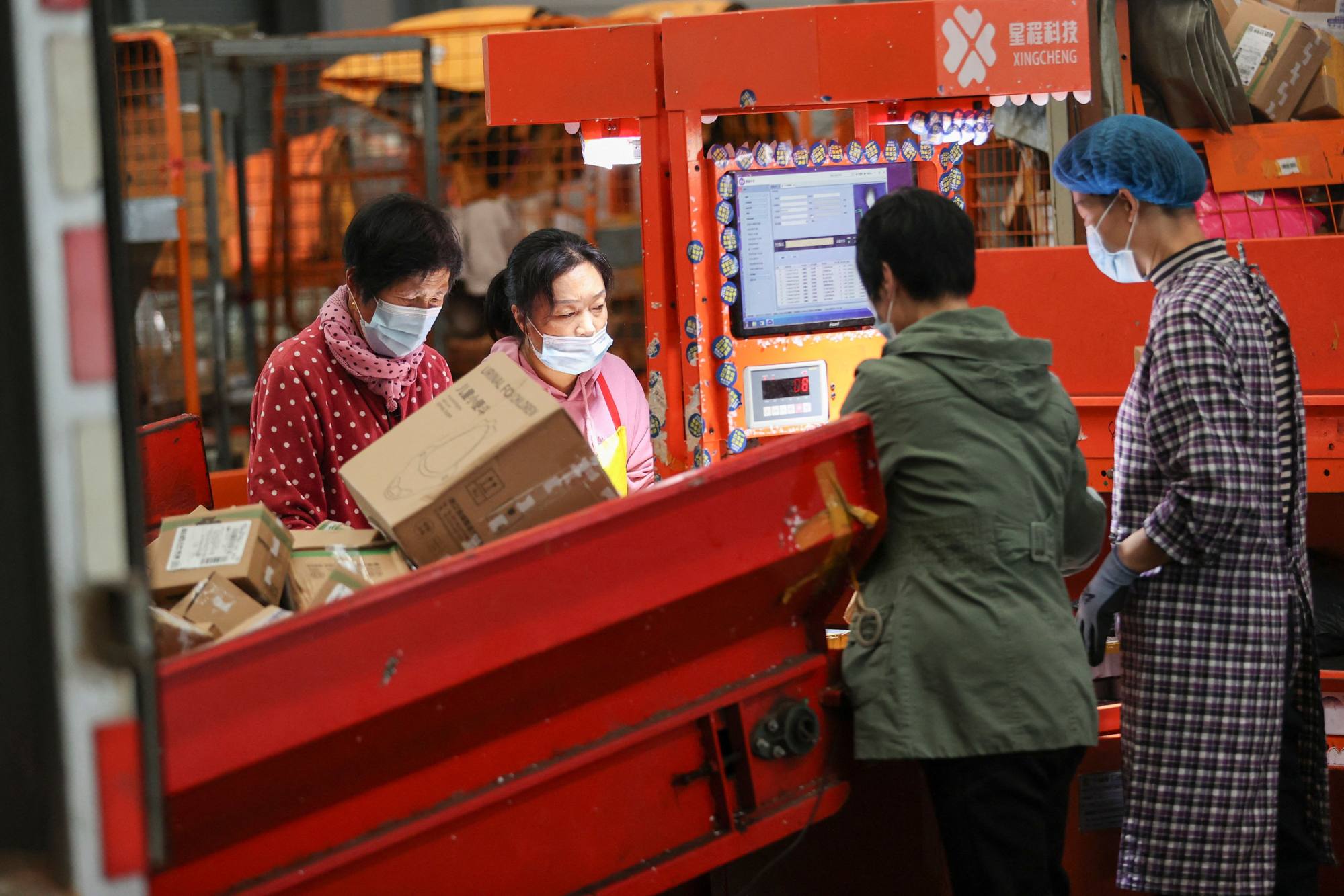
E-commerce giants Alibaba, JD.com keep Singles’ Day sales results under wraps amid China’s economic woes, zero-Covid-19 policy
- E-commerce rivals Alibaba and JD.com for the first time did not disclose final gross merchandise volume figures from their Singles’ Day promotions
- Alibaba said its final sales tally was in line with its GMV last year, while JD.com said its promotion this year achieved ‘record-breaking’ results
But in separate statements, both companies for the first time withheld announcement of their gross merchandise volume (GMV), or final sales tally, from the annual online and offline shopping extravaganza that culminates on November 11, known as “11.11”.
Alibaba, owner of the South China Morning Post, said its 14th annual 11.11 campaign “delivered results in line with last year’s GMV performance, despite macro challenges and Covid-related impact”. Alibaba’s GMV in November last year grew 8.45 per cent year on year to a record 540.3 billion yuan (US$84.5 billion), which marked the first single-digit GMV growth since the company created the shopping festival in 2009.
JD.com, by comparison, said it had set a “record-breaking” 11-day Singles’ Day promotion, which started on October 31. The Beijing-based company posted a total GMV of 349.1 billion yuan in the same period last year.
Still, some industry analysts suggest that the GMV figures from this year’s Singles’ Day promotions paled in comparison from previous years. “Their results were probably too bleak to be revealed, so the platforms chose to keep them a secret,” said Li Weidong, a senior e-commerce analyst.
Singles’ Day is seen by many investors as a proxy for consumer spending in China as well as an important barometer of the country’s economic health.

JD.com said it provided nearly 20 million new items during this year’s Singles’ Day campaign. The bestselling new products fall under the categories of smartphones, laptop computers, washing machines, refrigerators and flat-screen televisions. Shoppers aged under 35 accounted for 63 per cent of the total new customers on JD.com during its campaign.
“This Singles’ Day, JD.com further increased its investment in optimising the ecosystem, lowering operations costs and improving service guarantees to help brands and merchants, especially SMEs, seize growth opportunities,” said Xin Lijun, chief executive of JD Retail.
Total online retail sales of physical goods on the mainland grew 6.1 per cent year on year in the first three quarters this year, down from 15.2 per cent growth rate in the same period in 2021, according to data from the National Bureau of Statistics.


